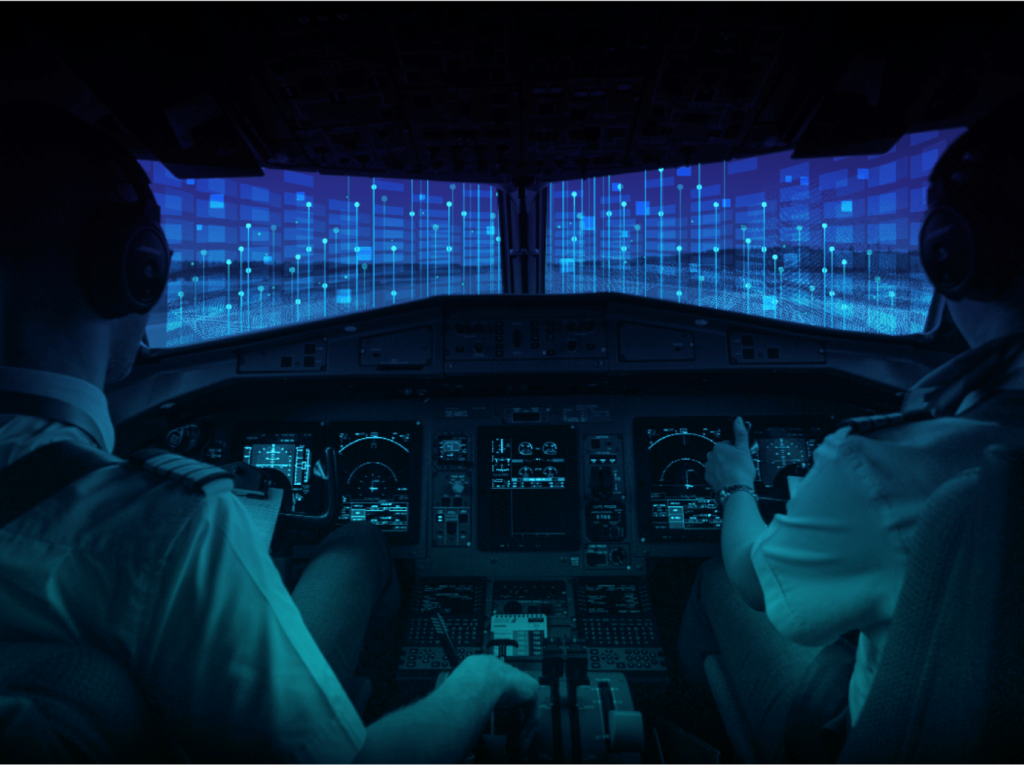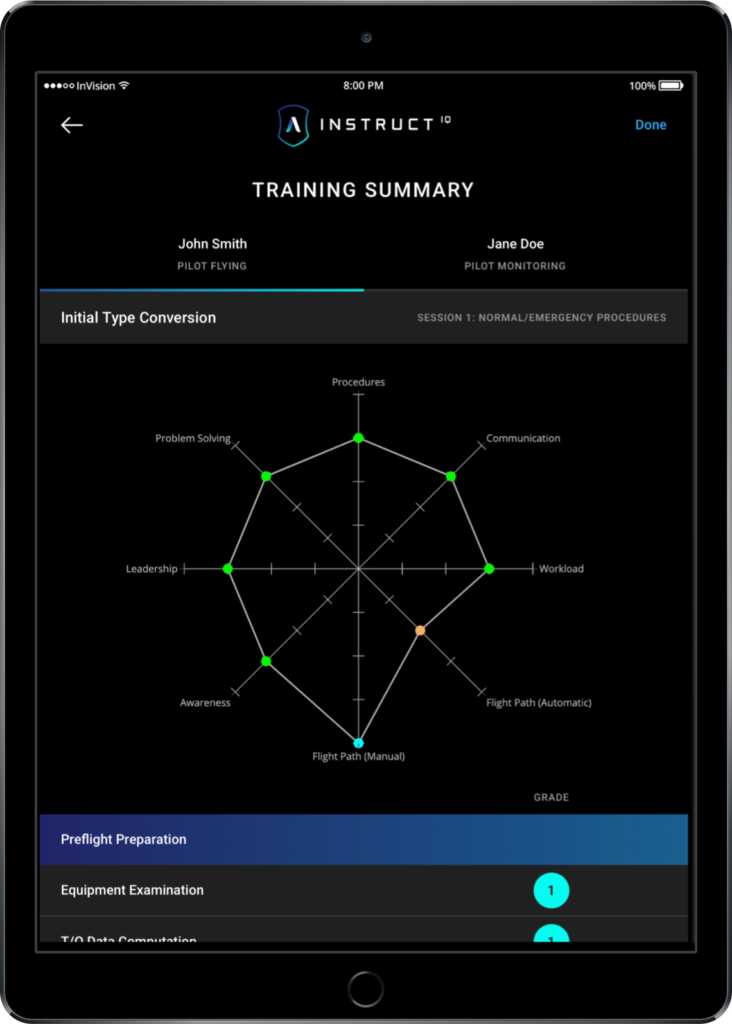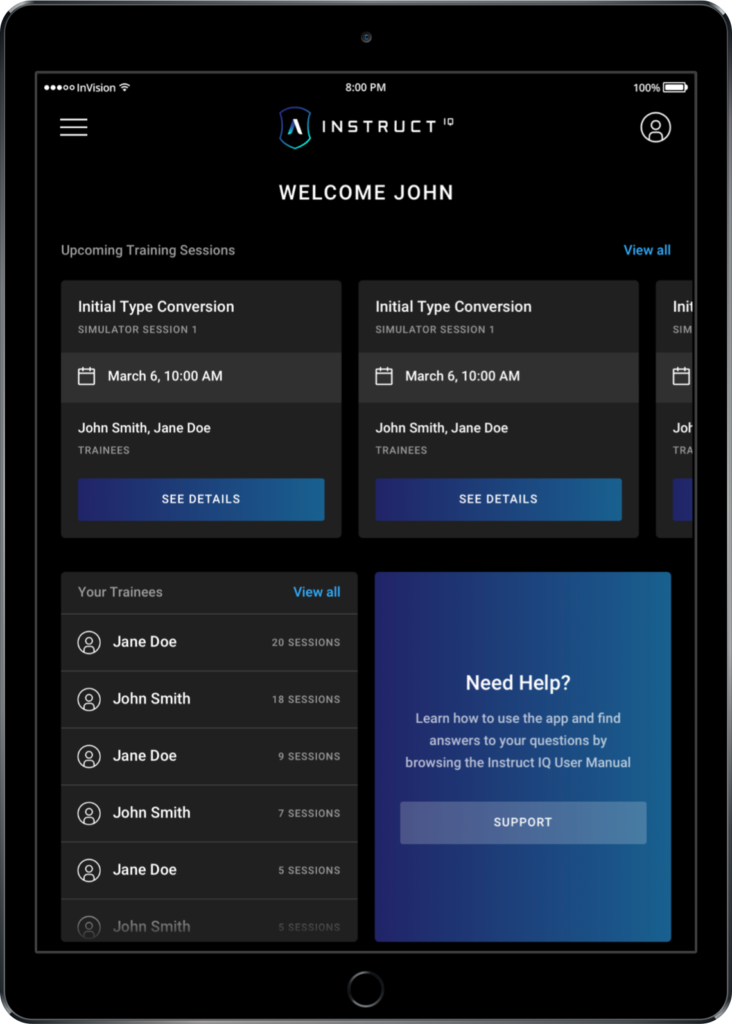Estimated reading time 10 minutes, 43 seconds.
Every time a pilot engages an aircraft’s flight controls, presses a button or flips a switch in the cockpit, that action triggers a continuous stream of data.
For years, this information has been recorded but its potential has barely been tapped. We’ve heard talk about “harnessing the power of big data” – but for years, artificial intelligence (AI) and machine learning remained nebulous concepts still to be explored.

Now, a Canadian father-son team has developed a platform that decodes cockpit data so it can be used to reduce the cost and improve the efficiency of existing pilot training programs.
Montreal-headquartered Paladin AI is led by Adolfo Klassen, former chief technology officer at simulator giant CAE, and his son, Mikhail Klassen, a recognized data and machine learning expert with a formal education in applied physics and math. In 2013, the two began discussing the future of pilot training. They zeroed in on industry bottlenecks such as escalating costs and training time. With his background in data analysis and machine learning, Mikhail suggested ways to interpret available pilot training data so that human instructors could tailor lessons to the needs of an individual student.
Individualized instruction forms the basis of competency-based training (CBT), a concept gaining popularity in the aviation industry. CBT essentially means that instructors spend more time on a student’s weaker areas, rather than focusing on those where they have already demonstrated competency.
With Adolfo’s contacts and Mikhail’s AI knowledge, the pair began raising venture capital and building the Paladin AI team in 2016. They developed InstructIQ, a cloud-based software platform that interfaces with existing flight training devices, at any level of complexity.

“We wanted to be able to handle any kind of device,” said Mikhail, Paladin AI’s chief technology officer. “We started with the Level D full-flight simulator (FFS), but our intention is to interface with any device built by any manufacturer, to offer valuable insight to any instructor.”
He explained that in an FFS, almost half of the data generated pertains to different malfunction scenarios. The InstructIQ platform captures the simulator behaviour of the virtual aircraft, associates every pilot input, and streams this information continuously in real-time to Paladin AI’s cloud.
“As data flows in, we have algorithms that identify what maneuver the pilot is flying,” he continued. “It begins to apply contextual analytics to that space and time – for example, a takeoff. We check a number of things: how the pilot maintains airspeed through the climb, how they react to an engine failure when they retract the landing gear and flaps.”
Paladin AI’s platform analyzes a student’s performance against how expert pilots perform the same maneuvers. It looks for patterns, performs an individual assessment, and recommends a competency score for technical, performance and competency requirements.

“Our goal is to improve training based on the strengths and weaknesses of individual pilots,” said Mikhail. “We want to reduce the workload on the instructor by giving them insight into a student’s performance. At the end of the day, a human still validates the data. The platform doesn’t override the instructor.”
Much of today’s pilot training is task-based. Paladin AI has created a system that grades students on how they complete various tasks, while also generating a score on technical competency.
“This is especially relevant in ab initio pilot training, where people are learning basic skills,” said Mikhail. “Do you need a teacher there for every aspect or can you start off with machine learning and graduate up to a human instructor?”
This type of technology is also valuable during the post-lesson debrief, where an instructor and student review what went well and what needs work. As a tool that automatically highlights areas for improvement, InstructIQ can assist with shaping the focus of future lessons.

Reducing a flight instructor’s workload will allow them to teach more students. Mikhail said this is a win-win at a time when experienced flight instructors are scarce, with the industry again predicting a pilot shortage in the coming years.
Capitalizing on a regulatory tailwind
Paladin AI is working to make its platform compatible with more full-flight simulators, flight training devices, navigation and procedures trainers and with virtual and augmented reality devices.
“We’ve had the most success partnering with simulator OEMs,” reported Mikhail. “They are eager to enhance the experience customers get with their sim. That’s a win-win and we need those partnerships.”
It’s been slower going with airlines and flight schools, which tend to have more concerns about data and privacy. Paladin AI is working with “a few airlines to demonstrate the value proposition of InstructIQ,” said Mikhail. “I can’t name any of them yet. Nevertheless, within a few months, we will be partnering with many more airlines and pilot schools.”
Timing is everything, and Paladin AI is offering InstructIQ to a market that is eager to embrace new training methodologies.
“The technology exists now that can enable this,” explained Mikhail. “AI wasn’t nearly as big 10 years ago. We combined these cloud platforms with access to lots of storage and computing power, and there is a greater willingness within aviation to try app-based tools.

“Plus, regulations are changing. A regulatory tailwind is pushing things toward CBT. Airlines are asking how to overhaul their training programs to include some form of CBT and assessment. It’s a great time for us to offer our solution.”
In the short term, Paladin AI will concentrate on perfecting its product and the user experience. Once the first airline trials are completed, the company plans to focus on flight schools and training centres. Mikhail is also interested in the growing eVTOL market, hoping “we can get in on the ground with a really exciting new modality of flight and help design the future of that training program.”
He’s optimistic for the future, as virtual reality continues to evolve alongside advances in artificial intelligence.
Together, they have the potential to reinvent pilot training as we know it.








